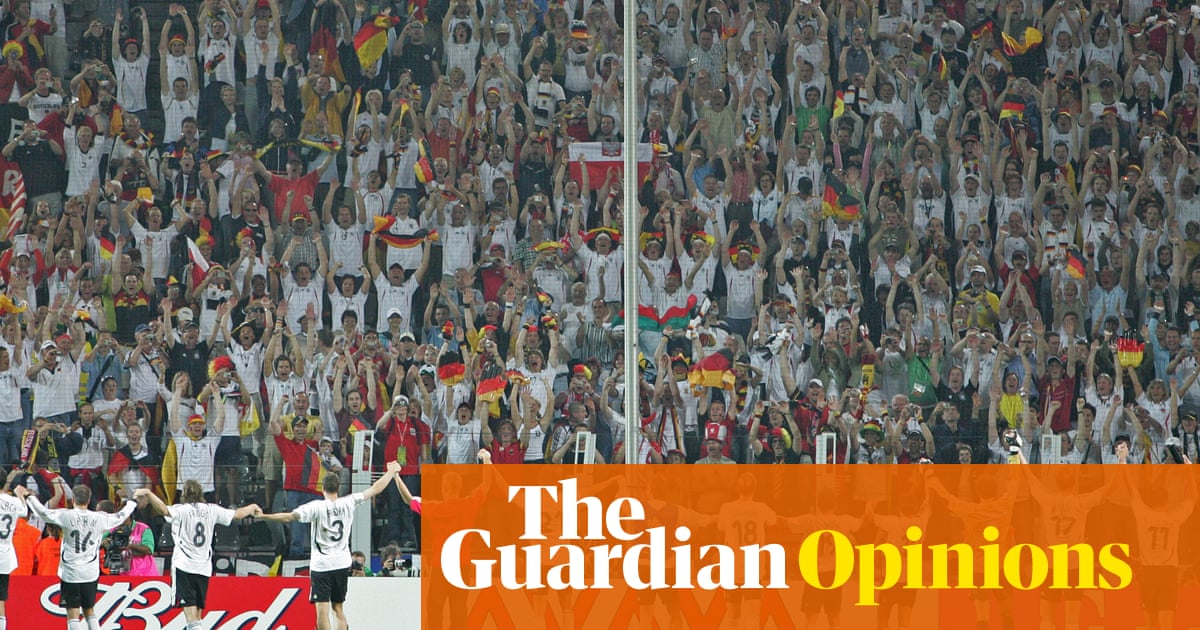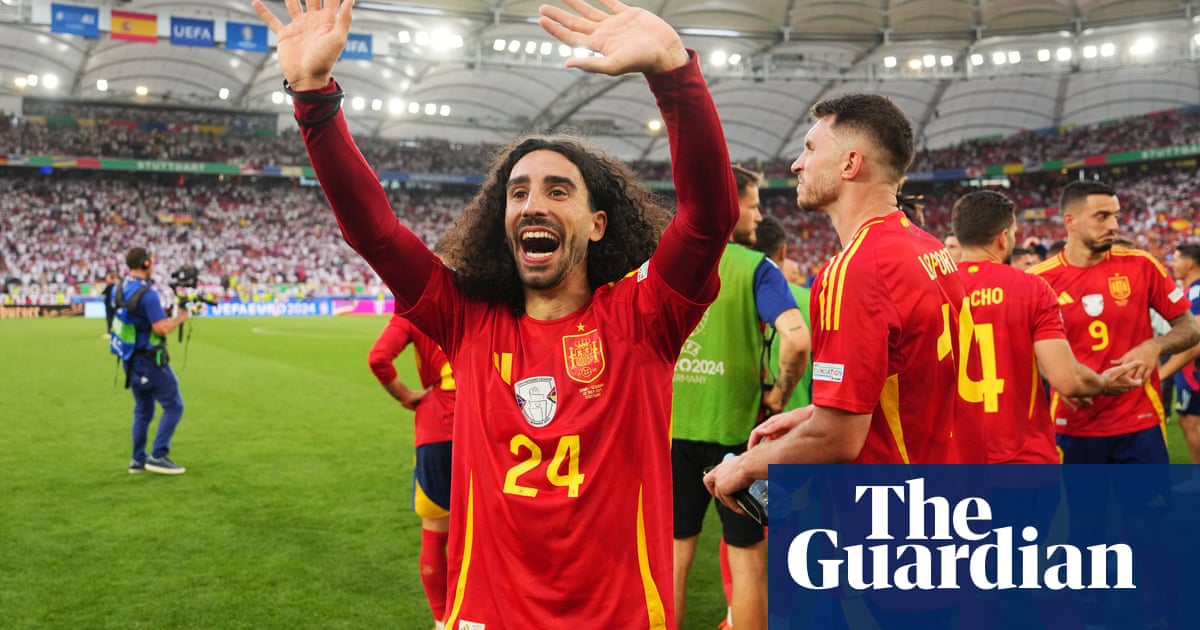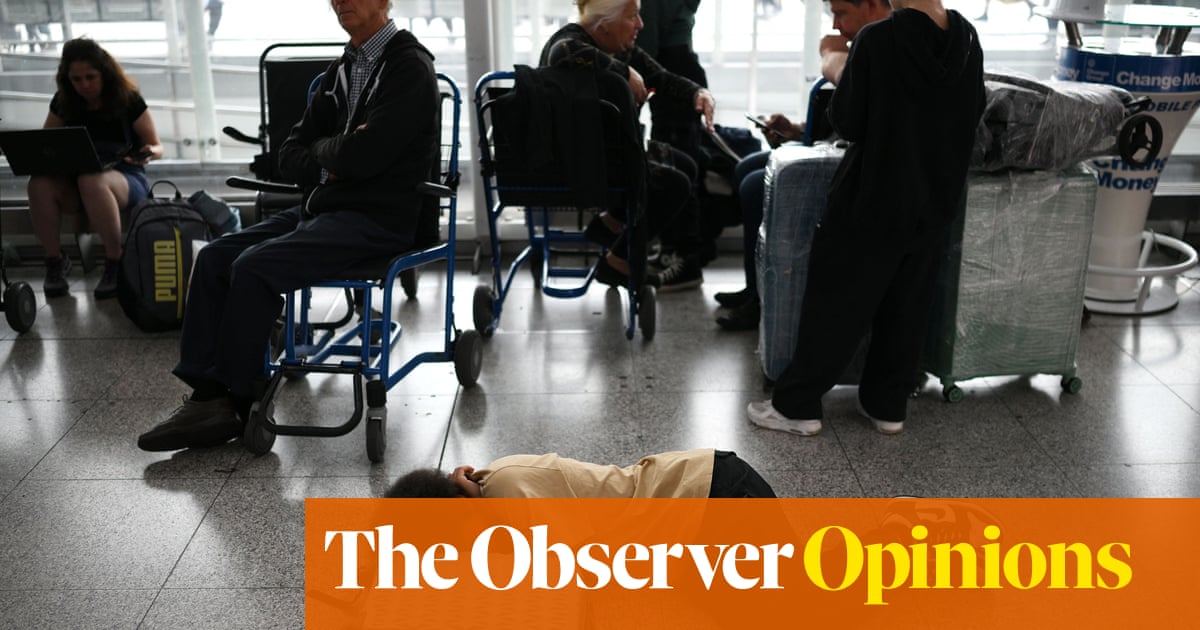
For weeks, millions have been demonstrating in Germany in favour of preserving democracy. The impetus comes from the centre of society. It still has a good sense of when it is time to take to the streets. That motivates me. As tournament director of Euro 2024 I want to organise a good event. Football brings a lot of people together and the whole thing is fun and enjoyable. That also strengthens our civil society. Sport can be a means to an end.
The European men’s handball championship in Germany in January has shown what sport can achieve. In Cologne 30,000 people demonstrated in the city centre and in the evening there were almost as many in the hall to cheer on their team. Protesting and celebrating are different actions, but they have something in common. They require physical presence and they express appreciation. In this case, for our free way of life.
In these times we must be grateful to all those who organise demos, fan zones, music festivals or sporting events for their commitment. Every cultural event now takes on a different meaning. It’s great that people are going out again after the pandemic restrictions. It’s still the best place to feel that we are all human.
My decision to join the bid for the Euros by the German Football Federation (DFB) after my career ended in 2017 had to do with the crisis in sport. At the time there was a lot of scepticism about major events. Fifa had awarded the World Cup to Russia and Qatar, while the International Olympic Committtee had awarded the Olympic Games to Sochi and Beijing. European democracies became sceptical when the values of sport were mentioned.
This could not be in the interests of Germany and the western world. I wanted to contribute something to counteract this, on a small and large scale. I help as a coach at my home club, FT Gern, where my son plays. And I became tournament director of the European Championship.
It was already apparent in 2018, when Germany won the bid from Uefa in Nyon ahead of Turkey, that a “Zeitenwende” [turning point] was about to dawn in sport. We are now experiencing an era when Europe must live its values. Sport can be a piece of the mosaic.
First and foremost football is spectacle and entertainment. But the game can also be used to discuss many developments in society, good and bad. No team have ever benefited from players pointing the finger at others after defeats. Just as it doesn’t help to blame certain groups of people, such as migrants, for the crises of the present.
In the spirit of Pierre de Coubertin and Jules Rimet, who founded the modern Olympic Games and the football World Cup respectively, international sporting events promote human rights and international understanding. For six years I have been carrying out my duties with this original sense in mind. My role is that of a mediator, trying to make everyone realise that the tournament can be used to create a sense of togetherness.
From conversations with our partners, I know that many companies have realised that football is not just a business, but that it is socially sustainable and makes us resilient. Our government also supports us.
The institutions involved need credible representatives and should strengthen each other in their tasks. The DFB’s role is to promote local clubs, where volunteers educate children. If its figurehead, the national team, also play as a team, then football fulfils its social responsibility.
I experienced it as a player. I was incredibly excited before the opening match of the 2006 World Cup because I felt a great responsibility as an athlete. I wanted to succeed; we as a team wanted to go far. The tournament then developed into something bigger. The time was ripe for Germany to present itself to the world as a good host. The “Sommermärchen” [summer fairytale] was created by the people and football was the catalyst.
Now we have the opportunity again. Uefa Euro 2024 should emphasise that we have the best conditions in Europe: freedom to travel, freedom of assembly, freedom of expression, to name just the most important ones.
Resentment is not a solution; it is destructive and detrimental to adapting to new circumstances. Being in favour of something keeps us alive. That is why solidarity is needed, including with companies and politicians. We don’t always have to agree, but we shouldn’t be overly critical of those who have been involved in centrist parties for decades.
It is now about the essentials, the fundamentals. It’s about defending our free and peaceful coexistence. Sport must make a contribution to this. It is a wonderful task for me, in Gern as well as for Germany and Europe. I approach it with optimism.
Philipp Lahm’s column was produced in partnership with Oliver Fritsch at Zeit Online, the German online magazine.












